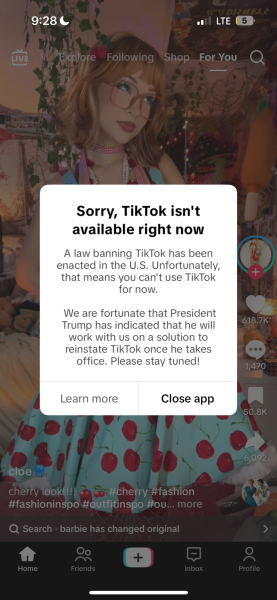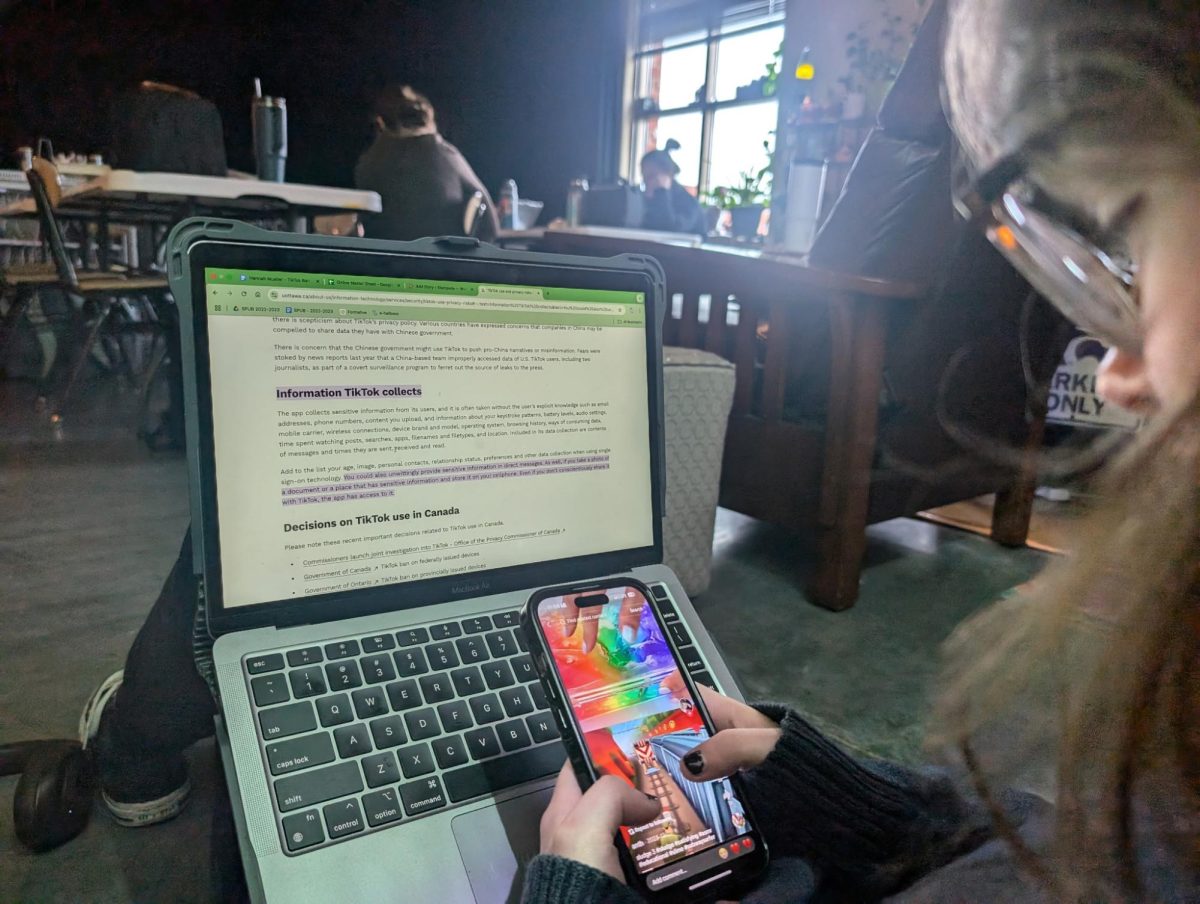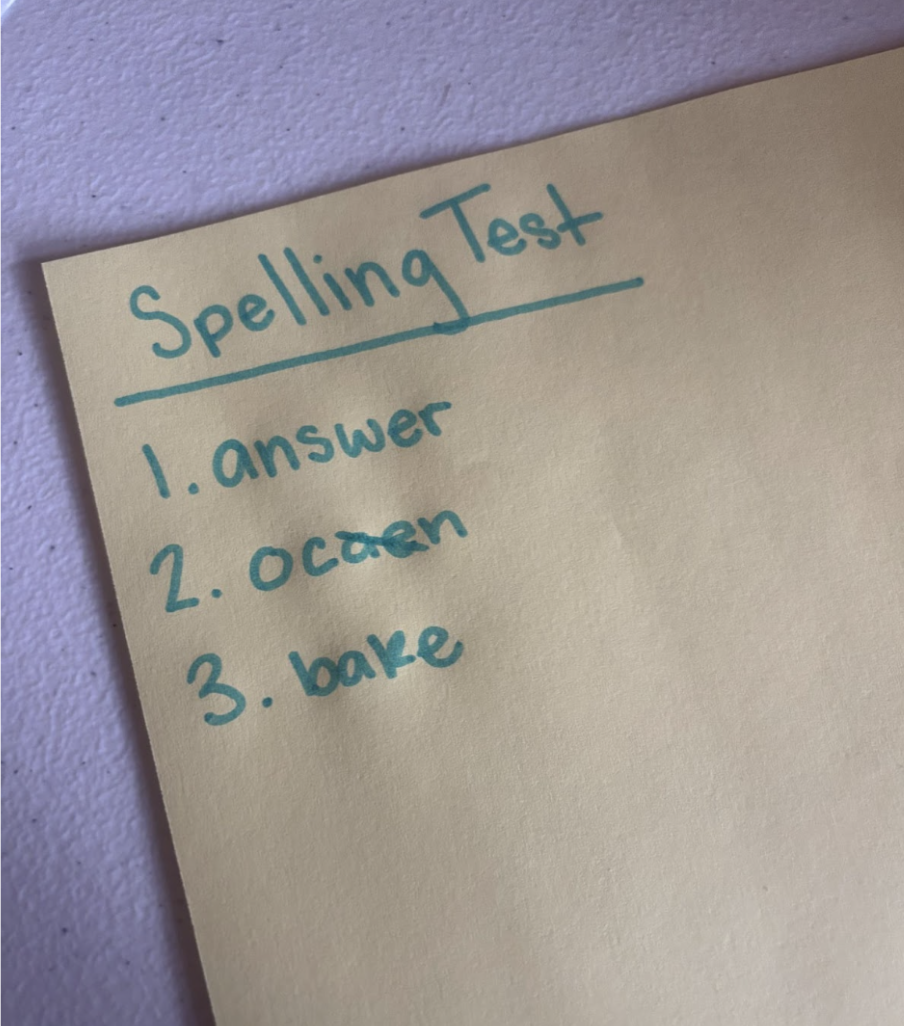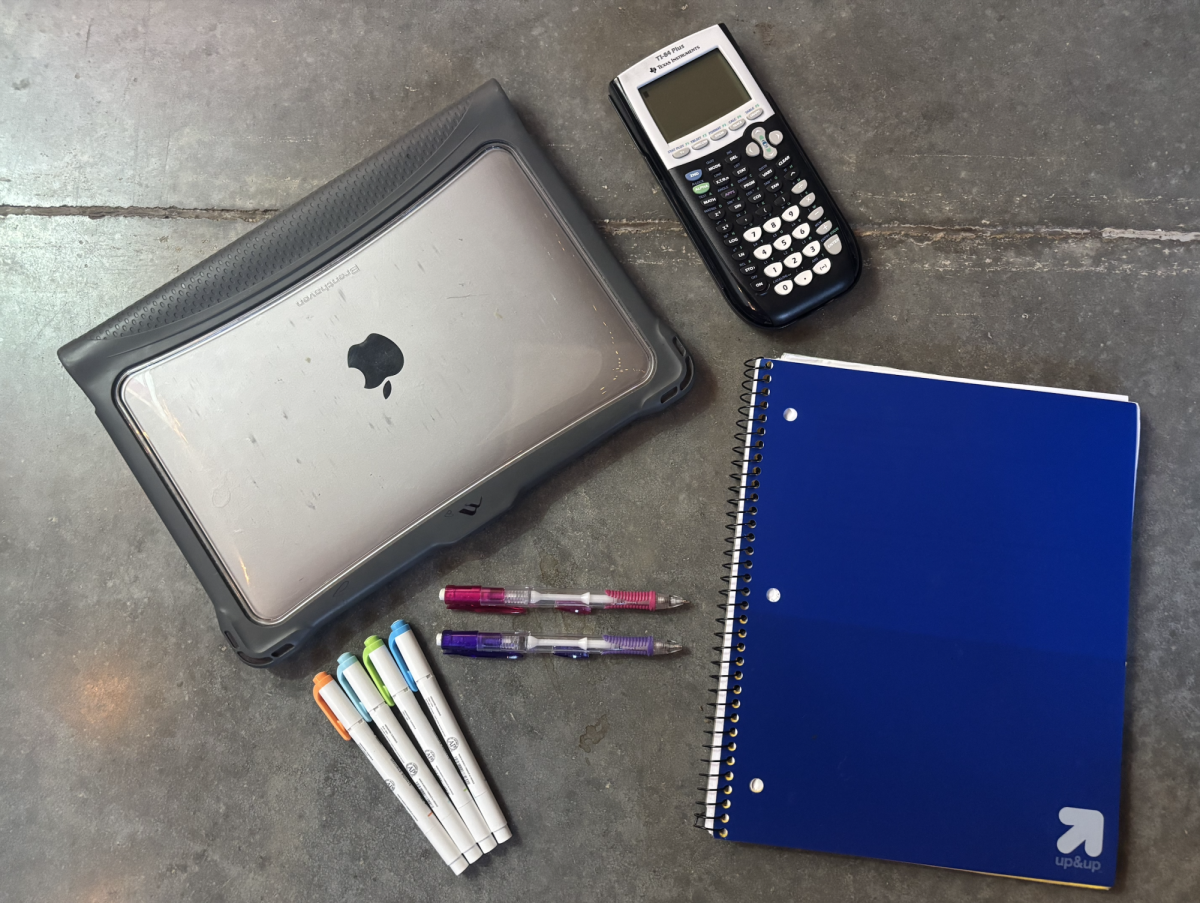Around 8 p.m. on Jan 18, the popular social media app, TikTok, got “banned” in the U.S.. This ban caused U.S. users to be able to open the app, but not able to use the app. It also was removed from app stores for U.S. users with a message stating that TikTok was banned and to please close the app. Although this ban only lasted for around 12 hours, as it was up and running the morning of Jan. 19, there were many people mourning the loss of the app; both before and during the brief ban.

TikTok’s impact on different communities is astounding. Many small businesses run on TikTok, and many people have quit their full time jobs to be a “Tik Toker” or “influencer.” For these reasons, it made sense for people to mourn the loss or say goodbye to Tiktok. But the degree to which people took this ban to heart was incredibly concerning.
Many joke around about being “addicted” to their phones or “addicted” to TikTok, but people don’t realize how true that really is. In the mere 12 hours TikTok was banned, so many people were “crashing out” over the fact that they couldn’t scroll mindlessly. People I knew continued to click on the app so many times, out of habit, that some considered deleting the app all together.
I even observed people exhibit common signs of addiction withdrawal. Although this might seem like an over-exaggeration, clicking on an app you know is not working multiple times out of habit is comparable to “craving” something like you would if you were quitting smoking or alcohol. Even myself or others around me became extremely restless and bored without the constant dopamine rush.
Addiction to social media is a real thing, and it’s honestly incredibly scary. I find myself mindlessly scrolling on social media all the time, and it’s genuinely a real issue that not many people take seriously. So although, yes, TikTok is a fun app, it’s important to realize that there might have been an actual benefit to having it banned. Along with all the other conspiracy theories on the banning of that app, it’s important to also recognize how you are using it, and if you really are “addicted to that damn phone” as many adults have unfortunately pointed out.

















